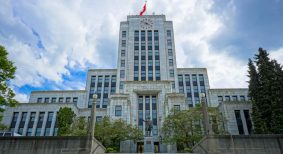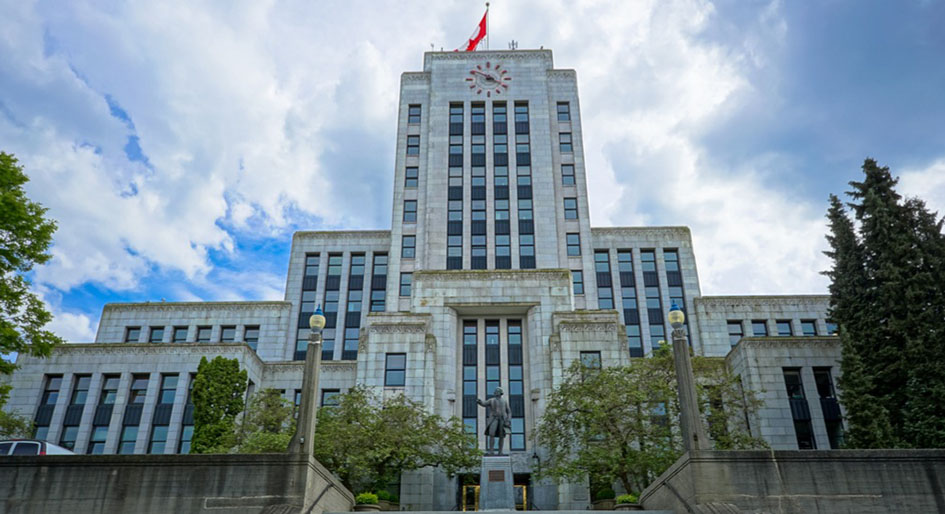City of Vancouver has taken new steps to advance zero emissions buildings. The steps are taken from four reports aimed at collectively removing more than 50,000 tonnes of carbon pollution in Vancouver annually.
“The latest Intergovernmental Panel on Climate Change report states it is ‘now or never’, to avoid the worst of climate breakdown. Vancouver has the tools and ability to act,” said Mayor Kennedy Stewart. “Tackling emissions from existing buildings, shifting our construction practices and prioritizing residents’ safety, health and comfort is a win-win.”
The four Climate Emergency Action Plan reports include the following actions:
- Requiring cooling and air filtration in new buildings to protect residents from air pollution and heatwaves.
- Reducing carbon pollution from large existing office and retail buildings by 40 per cent by 2030 and requiring zero emissions by 2040.
- Cutting carbon pollution from all new buildings to nearly zero by 2025, a 90 per cent reduction compared to 2007 levels.
- Creating first-of-their-kind requirements in North America to limit carbon pollution from building materials and reduce waste.
- Exploring options to remove gas for cooking and fireplaces in new residential buildings.
- Prioritizing electrification over renewable gas in new and existing buildings.
- Streamlining existing regulations to make renovations easier.
- Pioneering processes to track and cap emissions from large existing commercial buildings.
- Providing supports for owners of existing multifamily buildings, detached houses, and commercial buildings to access energy coaching and rebates for heat pumps.
- Delivering a roadmap of future regulations to support industry and resident readiness.
- Funding existing non-market housing to make these options more climate-resilient.
The city has prioritized eliminating carbon pollution from large commercial buildings, which have the best opportunities and resources to make energy-efficiency retrofits and switch to renewable energy.
The four building emissions reduction reports are part of the city’s Climate Emergency Action Plan, which analyzed the sources of Vancouver’s carbon pollution and committed to cutting these emissions in half by 2030.











Not saying it isn’t wonderful to achieve, if at all possible given that tens of thousands of new residents come here annually, but is the Council aware that even if this could be done, it would only reduce the world’s emissions by .0014, totally insignificant, and wouldn’t change climate one iota. Question is, at what cost is this being done and what could be done that would have more impact with this money?